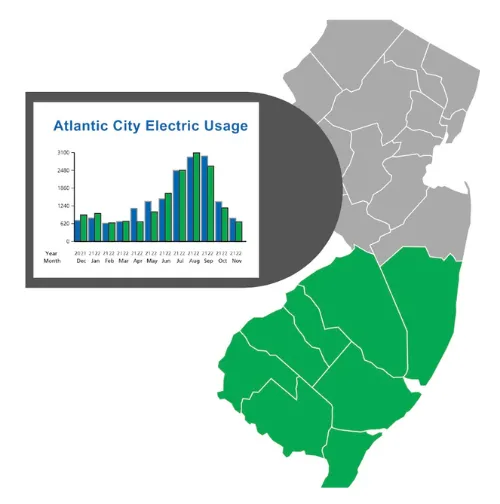Atlantic City Electric presents a net metering program that empowers owners of solar panel systems to harmonize their energy consumption from the utility with the energy generated by their solar panels. This guarantees a steady power provision for customers, addressing the intermittent nature of renewable energy sources. Additionally, participants stand to gain financial advantages by selling any excess energy generated by their solar panels back to the grid.
What are the rate and pricing structures for net metering provided by Atlantic City Electric?
AC Electric calculates its net metering rates based on the annual net metering credits, which are then multiplied by the current retail rate. These credits are applied to forthcoming bills and any excess credits are carried over to the customer's account at the end of the year.
The net metering program from Jersey Central Power & Light encompasses three primary tiers based on system size, which determine the corresponding rates and prices. For Level 1, designed for solar panel systems up to 10kW (typically serving residential customers), Level 2 is intended for installations up to 2,000kW, while Level 3 pertains to facilities falling outside the criteria for Level 1 or Level 2 interconnection procedures.
What is the net metering capacity limit imposed?
In New Jersey, the net metering cap is set at 2.9% of the total annual kilowatt-hours (kWh) sold within the state by individual electric power suppliers in the preceding year. While there is no strict and inflexible constraint on net metering, the Board of Public Utilities (BPU) holds the authority to discontinue net metering availability upon reaching this capacity threshold. However, it is noteworthy that the BPU also retains the option to extend net metering even after this threshold is achieved. This mechanism is referred to as a "trigger" rather than a rigid cap.
What happens with the net metering bill credits?
In certain scenarios, AC Electric patrons might generate surplus electricity beyond their consumption, leading to a situation called net excess generation (NEG). This generates additional net metering credits, which are allocated both on a monthly basis and at the close of the year.
For every kilowatt-hour (kWh) of NEG produced, customers are reimbursed at the full retail rate, up to the total electricity amount they consumed within that yearly period. These credits are utilized to offset forthcoming bills until exhausted and have a validity until the year's end. If there are any remaining credits by the end of the year, the value of the excess generation is credited to the customer's account at the wholesale cost of power.

What Areas Do Atlantic City Electric Cover?
Burlington County
Ocean County
Camden County
Gloucester County
Salem County
Cumberland County
Cape May County
Atlantic County

Facebook